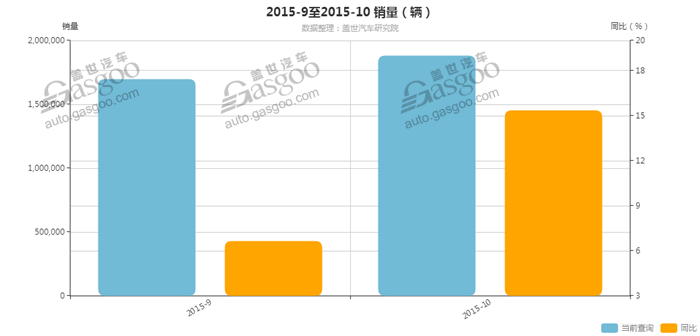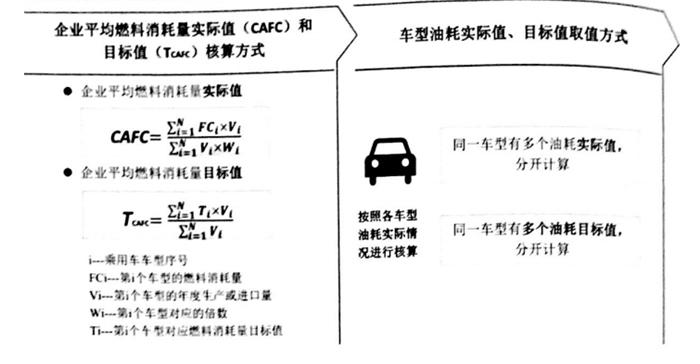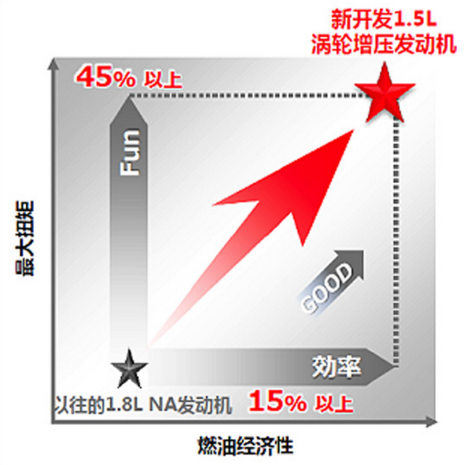Analysis of why the withdrawal of purchase tax has little effect on sales of small-displacement vehicles.
In the 11th Golden Week of 2015, the policy of halving the purchase tax on small-displacement passenger cars was formally implemented. During the seven-day holiday period, the sales of vehicles under 1.6L displacement in many local auto markets were hot. According to Gasgoo's manufacturing enterprise database, the auto market saw an increase of 15.35% year-on-year in October 2015. At that time, the implementation of policies had immediate effects on the market. Why does the withdrawal of purchase tax subsidies have little impact on the sales of small-displacement vehicles? It analyzes the three aspects of industry policy, car enterprise technology, and vendor countervailing. Policy incentives gradually reduce the power, the market gradually superimposed purchasing power fades The purchase tax halve policy has been implemented for more than a year, and on the first day of January 2017, the first time the slope was ushered in, the tax rate rose from 5% to 7.5%. According to the Gasgoo Drive System data, the national 1.6L and lower row in 2017 The sales volume of passenger vehicles was 16,846,003 vehicles, which accounted for 68.86% of the total passenger car market. Starting from January 1, 2018, the purchase tax preferential policies for small-displacement automobiles with a price of 1.6L or less have been withdrawn, and the tax rate has been restored from 7.5% to 10%. According to data from the National Passenger Vehicles Market Federation, passenger vehicle sales rose by 11.57% year-on-year in January. According to Gasgoo's drive system data, passenger cars with a displacement of 1.6L and below in January still accounted for 67.78% of the market. At the same time, the data from the China Insurance Regulatory Commission’s strong motor vehicle sales data shows that in January 2018, the country’s small passenger vehicles with a displacement of 1.6L and below had a year-on-year increase of 12.32%, and the proportion of small-displacement vehicles in January 2017 and January 2018 was approximately 64.8%. . Double-integration policy promotes the increase in the loading of small-displacement engines Until September 28th, 2017, the closely watched "Measures for the concurrent management of the average fuel consumption of passenger vehicles and new energy vehicle points" (hereinafter referred to as the "double-integration policy") was officially released, including fuel consumption points and new energy sources. Automobile points, while the first aspect of fuel consumption points mainly requires traditional auto companies to use technical means to reduce fuel consumption, and the goal is to drop to about 5L/100km by 2020. The dual-integration policy puts pressure on fuel consumption. Small-displacement engines are an effective way to reduce fuel consumption and become an inevitable choice for car companies. New Technology Promotes Accelerated Application of Engines for Small Displacement Engines In recent years, small-displacement turbocharged engines have begun to extend to luxury brands. At the Geneva Motor Show, Mercedes-Benz has equipped a 1.5T four-cylinder turbocharged engine with a 48V BSA motor for the new C-Class, resulting in low power and 2.0T cash. The models remain the same. It is foreseeable that the future Mercedes-Benz will replace the entry-level powertrain with a 1.5T+48V combination. This will combine with BMW's current large-area X1, X2, 1 Series, 2 Series, and 3 Series 1.5T triple-cylinder turbocharged machines. Different approaches to meet the increasingly stringent emission regulations at home and abroad. (Honda L15B Series 1.5T Turbocharged Engine) The advanced technology of small-displacement turbochargers ensures a higher level of fuel economy than conventional large-displacement naturally-aspirated engines on the premise of ensuring the power level. Therefore, Honda and other OEMs will all have small displacements. Turbocharged engines are assembled on a large area for sale. Through Gasgoo's drive system data, it is not difficult to find that the domestic market share of auto-generator/joint-joint OEMs equipped with small-displacement turbocharged machines in 2017 exceeded 25.19%, showing an expanding trend. Overall, the OEMs have all entered the planning schedule for small-displacement turbocharged vehicles. Auto companies eliminate anti-buying concerns about buyers' purchase tax preferential exit Since the end of last year, most manufacturers have already issued relevant policies for the complete withdrawal of purchase tax subsidies in 2018. According to incomplete statistics, Volkswagen, Skoda, Toyota, Nissan, Audi, BMW, Mercedes-Benz, DS, and independent brands Geely, BYD, and Changan have given detailed preferential policies, such as 2.5% discount on purchase tax subsidies, or several thousand dollars. Different rates. Manufacturers' purchase tax subsidies can be said to have fired the first shot of public relations in 2018, making up for the preferential policies of the state to seize market share as a simple and effective marketing strategy. Conclusion: Low-carbon economy and new energy have become development themes In the next three years, new energy vehicles will continue to be exempt from vehicle purchase tax. At the end of last year, the Ministry of Finance, the State Administration of Taxation, the Ministry of Industry and Information Technology, and the Ministry of Science and Technology issued announcements to the public that, from January 1, 2018 to December 31, 2020, purchases of new energy vehicles will be exempt from vehicle purchase tax. . More and more consumers choose new energy vehicles for policy-driven, while small-displacement engines will become the last housekeeping magic weapon for fuel vehicles. The energy and environmental problems brought by the auto industry will ultimately depend on technological progress and preferential policies. The reason for the decline is the smooth decline in pulling power, and the actual market reaction is to superimpose the consumer's panic after purchasing the large fluctuations. The above is why the withdrawal of purchase tax has little effect on the sales volume of small-displacement vehicles. Shandong Jianlong Steel Co. , https://www.jianlongmetal.com
![]()


![]()

